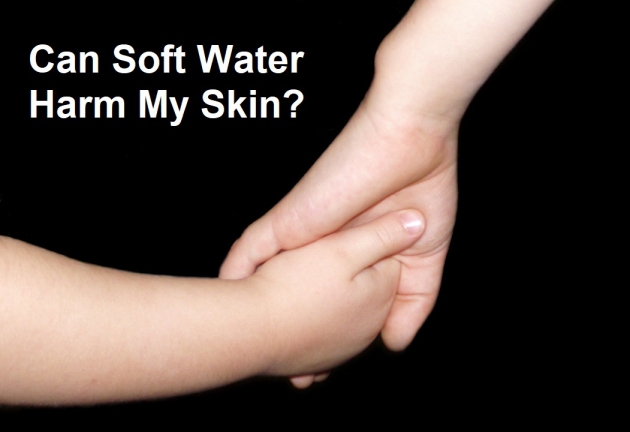The short answer is no! In fact, the exact opposite is true, but it’s easy to understand why some people may have this perspective. Why? Well to be perfectly honest, if you’re used to showering and bathing in hard water, it can feel weird when you make the switch to soft water. Without all the abrasive dissolved mineral content found in hard water, the softened water can feel slick and slippery on the skin. This is a phenomenon that most people adjust to quickly and it feels pretty good when you become accustomed to it. In this article, we will take a closer look at how hard water can affect your skin, hair, and even nails and what you can do to fix the problem.
What is Hard Water?
Hard water contains an elevated concentration of dissolved minerals that can cause havoc in your home. Around 85% of American homes receive hard water to a greater or lesser degree. Hard water can form scale inside plumbing pipes which lowers the water pressure and causes leaks and breaks. This water also damages water using appliances such as the water heater and makes them more inefficient. One of the lesser reported aspects of hard water is the effect that it can have on skin, hair, and nails.
Why is Hard Water Bad for Skin?
The aforementioned dissolved minerals are left behind on the skin after the water has evaporated. So, if you take a shower and dry off, there will be tiny mineral deposits on your skin. This material cannot be rinsed off because you’re simply adding more hard water and minerals to your skin. These minerals will dry out the skin, cause irritation and even exacerbate pre-existing skin conditions such as eczema.
Hard water also reacts with scale deposits and other contaminants to form bacteria ridden soap scum. This can be seen on plumbing fixtures, but it’s also on your skin and it’s hard to remove. People that wash with hard water are more prone to breakouts because their pores are clogged with minerals. The human body produces natural oils to keep our skin moist and these are distributed by the skin pores. So, if the pores are clogged it’s not surprising that we tend to notice more pimples.
According to leading dermatologists, the iron and magnesium ions in hard water produce free radicals that damage skin cells. Ultimately this leads to a collagen breakdown which will increase the signs of aging. Collagen is a structural protein that maintains skin firmness which reduces the formation of fine lines and wrinkling. When you consider the exorbitant costs of anti-aging skin cream products, water softening starts to look like a real bargain.
What Can I Do to Fix the Problem?
The only practical and reliable way to deal with hard water problems is to install an ion-exchange water softener. This exchanges the hard dissolved mineral ions with benign salt (sodium or potassium) ions to make the water soft and easier to use.
If you want to install a water softener in your home, contact your local water treatment specialist.

